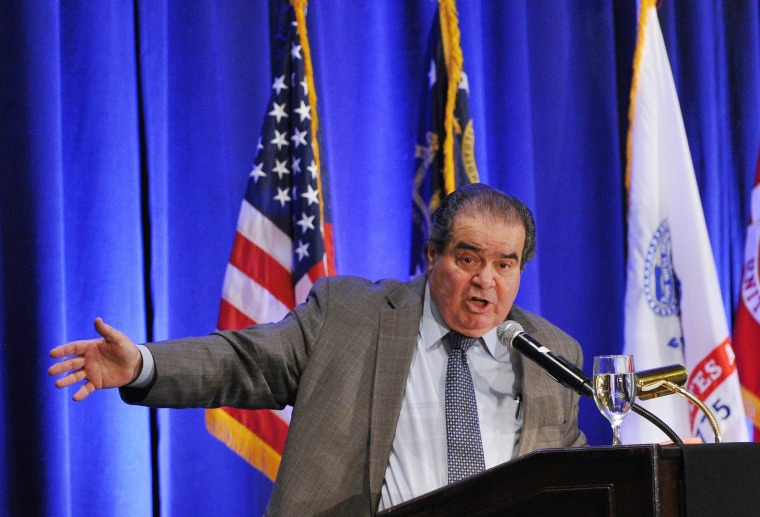When it comes to the issue of torture, it's been a discouraging week. Not only was the Senate Intelligence Committee report a heartbreaking indictment of an American scandal, but the argument surrounding the revelations started breaking far too much along partisan and ideological lines.
Antonin Scalia isn't helping. The Associated Press reported today that the far-right Supreme Court justice joined the debate, such as it is, "by saying it is difficult to rule out the use of extreme measures to extract information if millions of lives were threatened."
Scalia tells a Swiss radio network that American and European liberals who say such tactics may never be used are being self-righteous. The 78-year-old justice says he doesn't "think it's so clear at all," especially if interrogators were trying to find a ticking nuclear bomb. Scalia says nothing in the Constitution appears to prohibit harsh treatment of suspected terrorists. The interview took place at the court on Wednesday, the day after the release of the Senate report detailing the CIA's harsh interrogation of suspected terrorists. Radio Television Suisse aired the interview on Friday.
I think some caution is probably in order. The AP ran a five-paragraph article, and it seems entirely plausible, but there's exactly one, six-word quote in that piece. Everything else is a paraphrase, and to offer a detailed response to Scalia's take, we'd need to know exactly what the justice argued.
That said, if the AP report is accurate, Scalia's perspective is deeply ridiculous.
For one thing, opposition to torture need not be the result of self-righteousness. Brutally abusing prisoners is about humanity, basic decency, and the existence of a moral compass. For another, the "ticking bomb" argument is childish and unserious.
As for the Constitution, it's true that the document is silent on the issue of treating suspected terrorists, but it's not silent on "cruel and unusual punishment." And according to the CIA's records, rectal feeding and hydration were forced on detainees without medical need -- and the leap from that point to "cruel and unusual" seems quite small.
I'd still like to see a more detailed transcript of Scalia's comments, but let's just make this plain as part of the larger conversation: torture is wrong, it's immoral, it undermines our security interests, and it's illegal.
If Scalia is prepared to publicly argue otherwise, he's in the wrong line of work.
